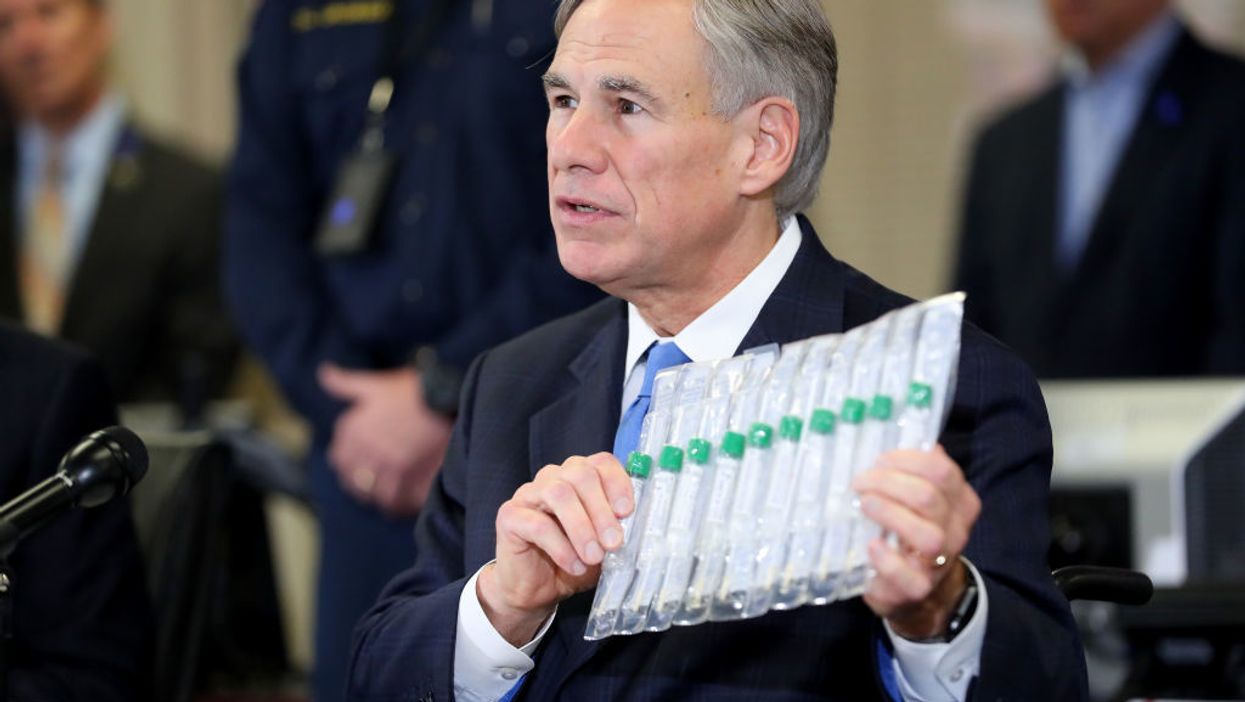Texans have not gotten any relief from some of the strictest vote-by-mail limits in the country, but now they will have the ability to cast ballots in person for almost three weeks ahead of the election.
Gov. Greg Abbott on Monday cited the complications of the coronavirus pandemic, which has surged in his state this month, in adding six days to the state's period for early voting.
The decision by the GOP governor was not a big surprise, because he'd lengthened early voting for this month's primary runoff and signaled he would do so for the fall. Nonetheless, it stands out because Republicans in charge in Austin have fought so many efforts by voting rights groups to broaden enfranchisement — and anything that could boost turnout is likely to benefit Democrats.
Starting Oct. 13 and ending the Friday before Election Day, there will now be 19 days to go to at least one place in all 254 counties to vote ahead of time, potentially permitting people not permitted to vote by mail — because they're younger than 65 and have no obvious illness or travel reason — to avoid long lines on Nov. 3.
The governor's proclamation also changes the state's status quo and allows absentee voters to avoid the vagaries of the Postal Service drop off their mail-in ballot to the early voting clerk's office prior to Election Day.
Texas has among the most restrictive mail-in voting rules of any state and last month the Supreme Court decided not to intervene in a Democratic Party lawsuit to expand voting by mail to all voters in the primary runoff. The party is pressing its efforts in lower federal courts in hopes of reversing the current state of play ahead of the general election.
Thirty-eight states and the District of Columbia allow for in-person early voting but the number of days varies widely. Minnesotans are allowed to go to the polls 46 ahead of time, while a handful of states permit that for less than a week. At 19 days, the new Texas timetable is right at the national average, according to the National Conference of State Legislatures.
"By extending the early voting period and expanding the period in which mail-in ballots can be hand-delivered, Texans will have greater flexibility to cast their ballots, while at the same time protecting themselves and others from the coronavirus," Abbot said in a statement.
Abbott's decision "is exactly like his Covid-19 response: the bare minimum and not fully thought through," countered state Democratic Chairman Gilberto Hinojosa.
The state has the second-most electoral votes, 38, and five polls in the past month suggest former Vice President Joe Biden is essentially tied with President Trump, who won Texas last time by 9 points. No Democrat has carried the state since Jimmy Carter in 1976, but the rise of Latinos and white-collar suburbanites is pushing Texas from deep red toward an inevitable purple if not blue.
In addition to the presidential race, M.J. Hegar has a longshot chance at unseating GOP Sen. John Cornyn, a handful of suburban congressional seats held by the GOP are highly competitive and the Democrats even have a viable opportunity to win control of the state House
In another voting-related development in Texas, a new lawsuit was filed Friday challenging the state's vote-by-mail system, arguing it discriminates against people with disabilities.
The federal lawsuit points to Texas counties that currently offer electronic ballots for people in the military and overseas, arguing that the state already has the ability to offer more accessible ballots to persons with disabilities.




















